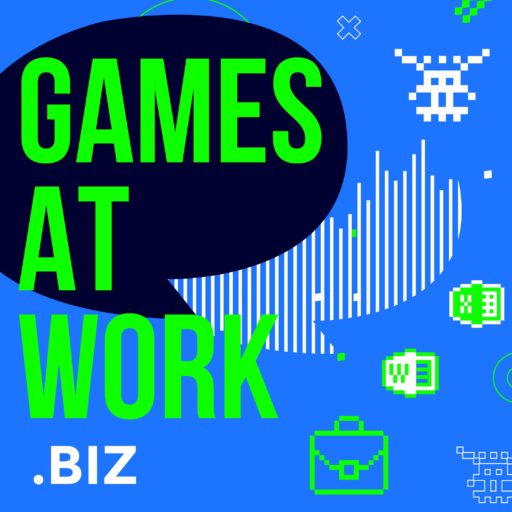
Published 20 March 2023
Michael, Andy and Michael start things off for this edition of Games at Work with a series of virtual reality stories. After discussing Spotify’s WonkaVision for how to create realistic depth from a webcam, the team considers whether VR influencers can “save the metaverse”. Next up, it’s Second Life’s 20th anniversary! The party is scheduled for June 23rd, and opportunities for performers are open at the SL website. After talking about Microsoft Mesh 3D avatars being added to Microsoft Teams, the co-hosts turn to the increasingly hot topic of AI.
Stories include AI ethics, OpenAI’s transparency, instructions on how to run GPT-3 on a Raspberry Pi and an extensive treatment on the level of hype that is eclipsing crypto. There’s even a new show launching this fall on Peacock with an AI as the central character – check out the trailer for Mrs. Davis in the show notes below. What is her quest? The Holy Grail, of course.
Disney’s quest to create a more realistic lightsaber has resulted in something quite special – and while it’s been around for a while, the video from SXSW is incredible. Diablo IV is in an open beta right now, and in the US, you can get a chance to join in the fun by buying a special sandwich at KFC.
Who would you like to see perform at #SL20B ? What is your quest? Have your bots 🤖 drop our bots 🤖 a line at @gamesatwork_biz@botsin.space (our home for now) and let us know!
These show notes were lovingly hand crafted by a real human, and not by a bot. That’s our story and we’re sticking to it.
Selected Article Links
VR
Hackaday article: Immersive Virtual Reality from the Humble Webcam
Spotify’s WonkaVision
Spotify’s other Spatial Commerce Projects
BBC Article: Can VR influencers save the metaverse?
Second Life Community post: SL20B Applications Now Open for Music Fest & General Performers!
Ars Technica article: Microsoft Teams is adding 3D avatars for people who want to turn their webcams off
The Register article: Microsoft dips Teams in the metaverse vat with avatars ahead
The Verge article: Microsoft lays off team that taught employees how to make AI tools responsibly
AI
The Verge article: OpenAI co-founder on company’s past approach to openly sharing research: ‘We were wrong’
Pluralistic article: The AI hype bubble is the new crypto hype bubble (09 Mar 2023)
Ars Technica article: You can now run a GPT-3-level AI model on your laptop, phone, and Raspberry Pi
USA Today article: Fact check: Audio of Bill Gates interview digitally altered to add vaccine, MIcrosoft discussion
The Verge article: The nun who wants to stop the AI
Misc
Kotaku article: Disney’s Fancy New Lightsaber Looks Like The Real Thing
The Verge article: Everything you need to know for the Diablo IV open beta
IGN.com article: People Are Freaking Out About KFC’s Diablo 4 Beta Codes
Bonus links
🧐⏳⌛️🔁
#StarTrek
Podcast: Play in new window | Download (Duration: 37:19 — 43.3MB) | Embed
Subscribe: Apple Podcasts | Spotify | Amazon Music | Android | Podcast Index | Youtube Music | RSS | More





